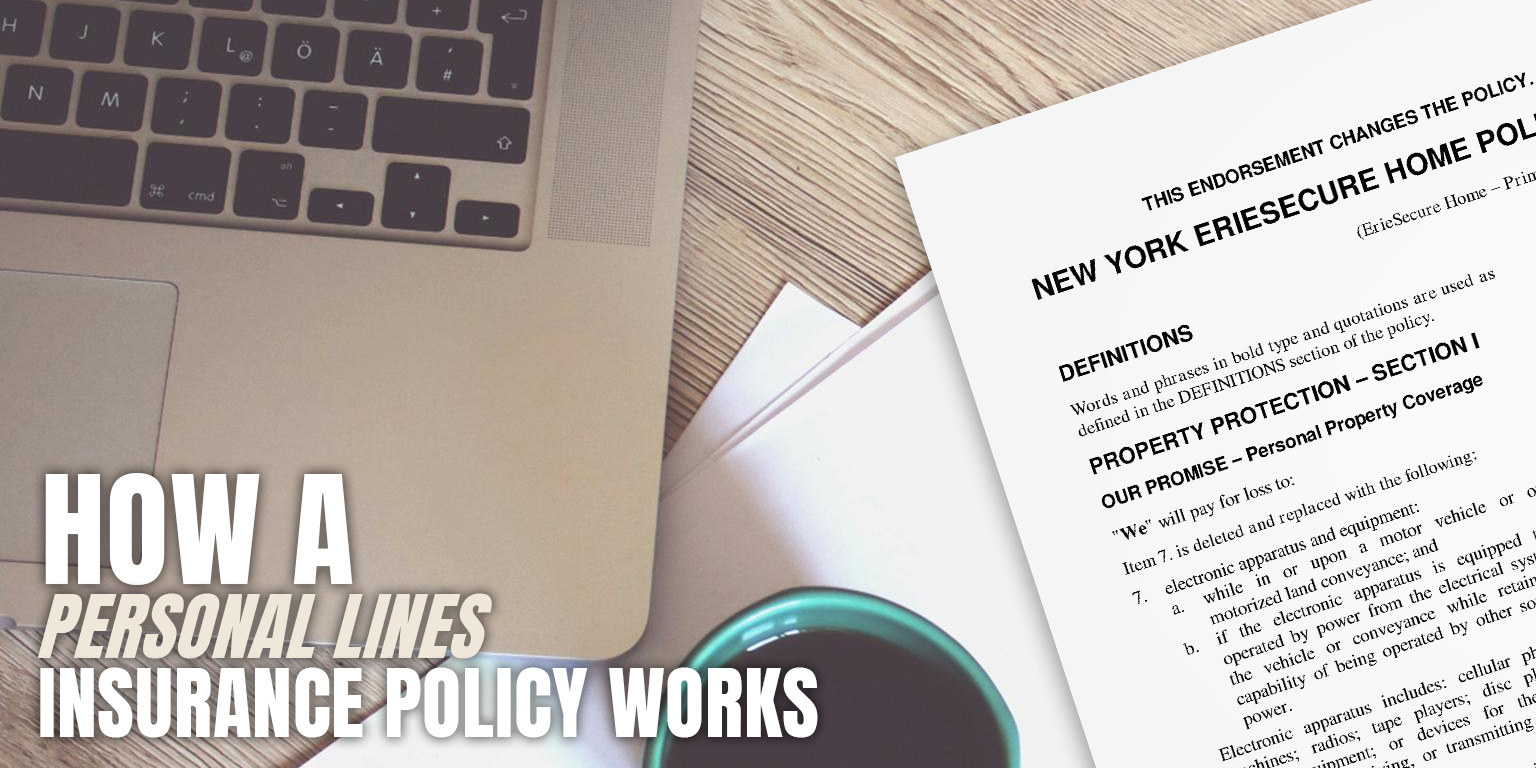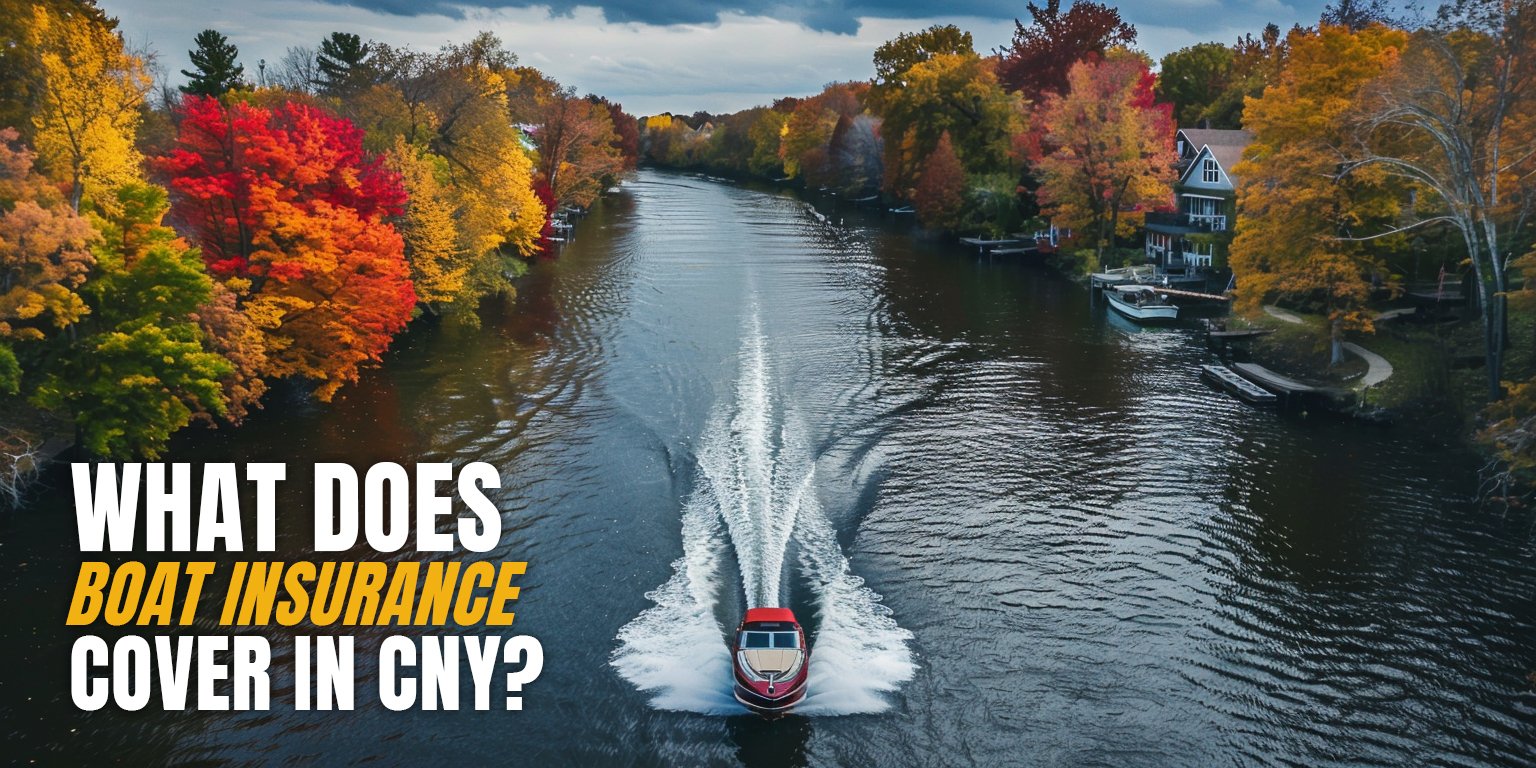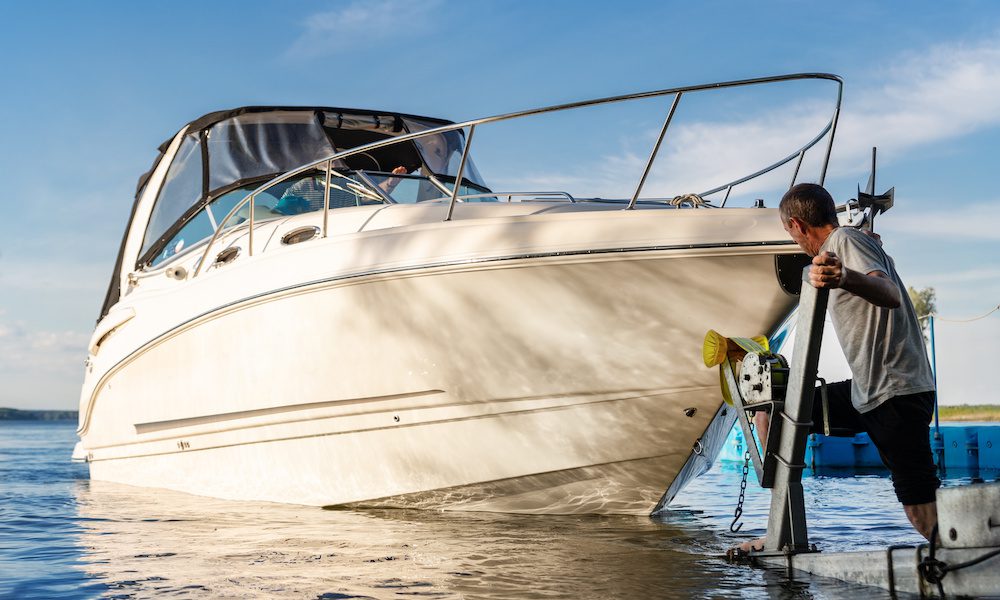5 Boat Insurance Mistakes First-Time Boat Buyers Make
July 4th, 2025
6 min read

The lure of fast CNY boats gleaming as they cut through the water, creating beautiful white wakes, is irresistible.
You’ve narrowed your search for your own boat and are getting close to buying one in time for the season. You can already see yourself using one of the many waterways CNY offers.
Before long, you’ll be cruising the Seneca River, skiing with your friends on Cross Lake, or spending the day with your family soaking up the sun at Sylvan Beach.
But before you set sail, take a moment to make sure you have appropriate insurance coverage for your boat and your boating family by avoiding some common mistakes other new boatowners have made.
As an agency located steps from Lock E24 on the Seneca River in Baldwinsville, we've done our fair share of boating and helped new boaters like you understand coverage options for new vessels. This can help create a better boating experience by providing coverage on the water, giving you confidence while enjoying our local waterways.
Owning a boat is a dream come true. We know you’d like to take advantage of the short window we have in the CNY boating season and not waste it on Google searches for boat insurance.
That’s why we compiled this handy list to shorten the learning curve and save you precious time by getting at the heart of the matter.
When you finish reading this article, you'll learn how to avoid five common mistakes that could make owning a boat a challenging experience.
Mistake #1: Thinking Homeowners or Renters Insurance Will Cover Your Boat
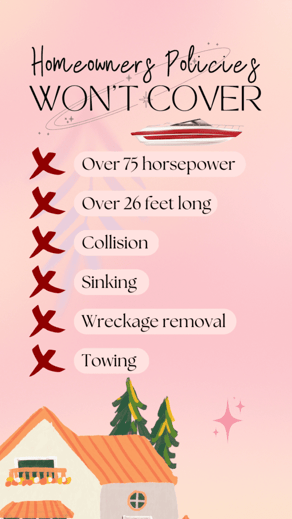 It’s true that your home or renters insurance policy has some insurance coverage for boat owners. However, those policies are restrictive and typically have a low limit for watercraft coverage. This means that if your boat is damaged or destroyed, you may not be able to recover the full cost of your loss.
It’s true that your home or renters insurance policy has some insurance coverage for boat owners. However, those policies are restrictive and typically have a low limit for watercraft coverage. This means that if your boat is damaged or destroyed, you may not be able to recover the full cost of your loss.
The typical home policy provides about $1,500 to cover damages to your vessel. Liability coverage is also offered, provided your boat is under 26 feet long and the motor is under 75 horsepower.
Moreover, homeowners and renters insurance policies don’t cover many types of boat damage. For example, collision, sinking, and disablement are all excluded.
These policies may also have high deductibles, which means that you would have to pay a significant amount of money out of pocket before your insurance company starts to pay for your loss.
Purchasing a separate boat insurance policy is often beneficial since it is designed to cover the specific risks associated with owning a boat. A boat policy typically has higher limits of coverage and can provide broader coverage than homeowners or renters insurance policies.
While it could seem enticing, the home and renters policies do not provide adequate coverage for the unique hazards a boater faces. It’s better to leave those policies for kayaks and canoes.
Mistake #2: Not Insuring for Agreed Value
There are three ways you can insure a boat:
- for Actual Cash Value
- for Replacement Cost, and
- for Agreed Value
Choosing among these options can impact your coverage and potential compensation following a loss.
Actual Cash Value
Let’s start with Actual Cash Value or ACV, which factors in depreciation. Following a loss, this option will allow the insurer to reimburse you for the current depreciated value of your vessel.
ACV is the current market value of your boat minus depreciation. This means that if your boat is worth $100,000 and has depreciated by 25 percent, your ACV would be $75,000. If your boat is damaged or destroyed, your ACV insurance policy would only pay you $75,000, even if the cost to repair or replace your boat is more than that.
Boats depreciate quickly these days. In the first few years, your boat can lose up to half its value. This means that if you have an ACV policy and your boat is damaged or destroyed after only a few years, you may not be able to recover the full cost of your loss through an Actual Cash Value boat policy.
Replacement Cost
Replacement Cost is another option, and choosing it will replace your boat with one of a similar make and quality. Replacement cost policies pay you the cost to replace your boat, even if that cost is more than the ACV of your boat.
However, that takes the control away from you, the insured. You have specific tastes and needs as a boater, and it’s fair to say you might not agree with the insurer’s idea of “similar.”
Agreed Value
For these reasons, many first-time boat owners consider the Agreed Value option if offered. This can be advantageous because it provides specific coverage amounts established when the policy is purchased.
With Agreed Value, you and your insurer agree on the set value of your boat before you purchase the policy. If the boat was a total loss (which can happen with less damage than you think), you’d receive the agreed value in return.
And you don’t have to worry about depreciation.
Mistake #3: Inaccurate Mooring or Storage Information
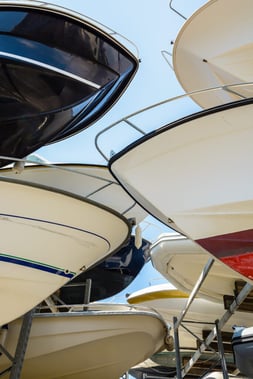 Inaccurate mooring and storage information on a boat can have a significant impact on boat insurance rates. If you provide inaccurate information to your insurer, they may not be able to properly assess the risk associated with insuring your vessel. This could lead to higher insurance rates or even policy cancelation.
Inaccurate mooring and storage information on a boat can have a significant impact on boat insurance rates. If you provide inaccurate information to your insurer, they may not be able to properly assess the risk associated with insuring your vessel. This could lead to higher insurance rates or even policy cancelation.
Your insurer wants to know where you regularly dock, use, and store your boat. Those locations affect the cost of the policy. A pontoon boat docked in Constantia, used on Oneida Lake, and stored elsewhere in the offseason is vital information.
If that same boat is docked in Bridgeport, it will have a different insurance cost. It is critical to provide your insurer with accurate information about where your boat is moored and stored. This includes the name of the marina or storage facility, the address, and the type of mooring or storage.
If you move your boat to a new mooring or storage facility, you should notify your insurer as soon as possible. This will allow them to update your policy so you’re still properly insured.
Mistake #4: Failing to Verify That Your Storage Facility Has Insurance
This is an offshoot of Mistake #3.
There is big money to be made in the CNY boat storage business.
Many larger marinas offer storage and have specialty insurance policies to cover various risks, such as collapsed dry racks or fire that can destroy all the boats stored for their clients. But it’s best to ask for proof of said coverage.
Simply request a copy of their insurance policy or contact info for the insurer.
You don’t want to store your boat with a facility that is not properly insured for three reasons:
- If your boat is damaged or destroyed while in storage, the facility may be unable to pay for the damages. This could leave you with a large financial loss.
- It may be unable to cover the costs of injuries or property damage that occurs on its premises. This could leave you liable for any damages that occur.
- The facility may have difficulty staying in business. This could mean you would have to find a new place to store your boat, which could be challenging and expensive.
Regarding smaller players in the storage business, it’s not hard to find folks willing to store a few boats in their pole barns for a fee. However, it’s possible that they are not properly insured for such enterprising endeavors.
Consider your options and help safeguard yourself and your vessel by following the steps outlined in this section.
Mistake #5: Not Insuring with a Carrier That Specializes in Boat Insurance
Ordering a pizza at the bowling alley makes sense because you’re there, and it’s convenient. But chances are, you’re not calling that bowling alley for pizza delivery to your home during the NFL season.
For the same reason, it may be worth considering specialized coverage options rather than always going with your car or home insurance carrier just because you're with them and they offer boat insurance too.
Boaters face unique risks that may be addressed by an insurer specializing in boat insurance. While those carriers might also insure homes and cars, they have at least made a point to create specific policies tailored to the needs of a boater.
We work with numerous boat insurance carriers that offer coverage options for various watercraft and boating situations, which you can read about in our article “Our Top 3 Picks for Boat Insurance Carriers.”

What If I Already Bought My Boat, Should I Change My Insurance?
If you’ve already bought your boat but didn’t give enough thought to appropriate insurance coverage, you should at least review your policy. There is a good chance you’ll want to enhance it or change it altogether.
Gather your policy, send it to us for review, and we’ll discuss insurance options with you.
Don’t Settle for Inadequate Boat Insurance
Boating may be one of your favorite pastimes. And there’s hardly a better place on earth than Central New York for spending time on the water with friends and family, which creates lifelong summertime memories.
Insufficient insurance coverage can lead to frustration, additional expenses, and a lost boating season.
With appropriate boat insurance coverage, you can focus on enjoying your time on the water rather than worrying about potential risks and losses.
We understand that boat insurance is not the most exciting part of buying your new boat. We really do get it! But once you've purchased appropriate boat coverage, you'll cruise comfortably knowing you've made an informed decision about this unique insurance option.
If you're ready to learn more about insurance coverage options for your boat and boating requirements, click the Get a Quote button below.
And if you want to dive deeper into boat insurance rates, read our article “4 Factors That Affect the Cost of Boat Insurance.”
Daniel is an accomplished content creator. He has been working in publishing for almost two decades. Horan Companies hired Daniel as its content manager in November 2022. The agency entrusted its messaging to him. Since then, Daniel has written insurance articles, service pages, PDF guides, and more. All in an effort to educate CNY readers. He's helping them understand the world of insurance so they can make informed decisions.
Topics:





